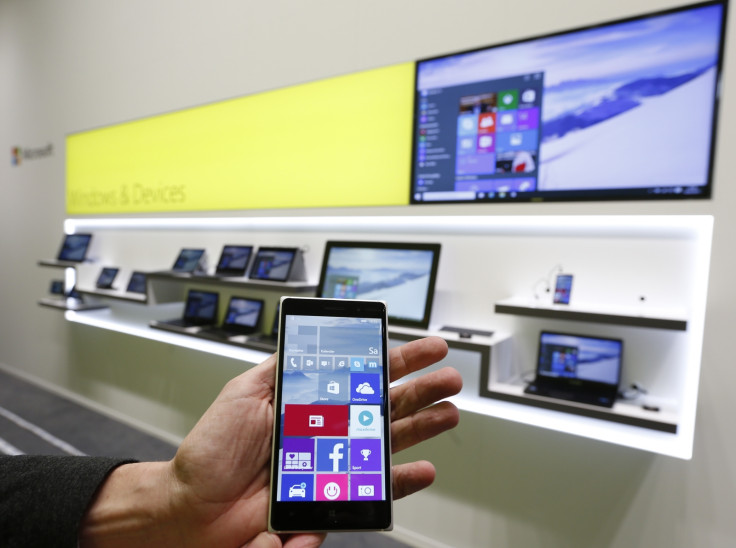Windows 10 Mobile: Can Microsoft finally break the iOS Android duopoly or is it game over?

Coming later this year, Windows 10 Mobile is the unified operating system Microsoft's phone customers have been waiting for - but it could be too little too late, analysts warn, as the iOS and Android duopoly continues to dominate.
Expected to arrive in September, a few weeks after Windows 10 for computers and tablets arrives on 29 July, Windows 10 Mobile will replace Windows Phone 8.1 on smartphones such as Microsoft's own Lumia range, formerly produced by Nokia.
'Microsoft has given up on phones'
Despite the excitement surrounding Windows 10 for PCs, laptops, tablets and hybrid machines, analysts question whether Microsoft still has its heart in the phone game.
"The bottom line is, I think Microsoft has given up pursuing the third ecosystem vision in phone and will now pursue users with Windows 10 on other devices and with services across platforms," Kantar analyst Carolina Milanesi told IBTimes UK.
A focus on high-end and enterprise
Milanesi believes Microsoft's recent restructuring of staff points towards a future with a smaller catalogue of Microsoft mobiles, which will "most likely [be] focused on high-end and enterprise to show off Windows 10 and then work with [manufacturing partners] to come up with a fuller portfolio."
She argues that Microsoft's perennial problem of an ecosystem much weaker than Google's and Apple's remains - and will remain after the launch of Windows 10 Mobile.
The silver lining of all this is that Microsoft's services - like Skype and Office - are offered on iOS and Android, so revenue can be earned from customers who choose not to buy a Windows phone.
According to data from IDC, Microsoft's Windows Phone division accounted for just 2.7% of worldwide smartphone sales in the first quarter of 2015, compared to Android (78%) and iOS (18.3%). This was a slight increase on the year before, but since the start of 2012 Windows Phone has failed to capture so much as 5% of the market.
HTC and Samsung, who both created Windows Phone handsets when the system launched in 2012, have seemingly given up on Microsoft, returning to focus entirely on Android (and in Samsung's case, on its own software, Tizen), while few Chinese manufacturers seem interested either.
Fighting fragmentation
But for the handful of Windows Phone faithfuls, the upgrade to 10 Mobile will be worth it, claims U Switch analyst Ernest Doku. Speaking to IBTimes UK, he said: "It's something that Apple already does very well - offering software updates to some of the oldest iOS handsets, a situation that the fragmented Android platform has fallen foul of on multiple occasions.
"Customers will now be confident in the knowledge that they can purchase the cheapest Windows device and still get the latest updates."
While Microsoft has struggled to capitalise on the impact Nokia's Lumia brand made to the high end of the smartphone market, Doku believes targeting the low-end is what Microsoft should now focus on.
"Targeting the entry level market with the new Windows 10 Mobile upgrade is a smart move. Word of $80 devices to support the new Windows 10 platform provides a huge opportunity to grow volumes in sub-Saharan Africa and Asia, where mobile usage is predicted to rise considerably as the primary form of accessing the web."
Surviving the cutthroat smartphone game
But, siding with Milanesi, Doku has his doubts about whether Microsoft can rekindle enough love for its smartphone offers with Windows 10 to make sticking in the market worth the effort. A small and fairly weak handset portfolio could spell disaster if it isn't grown quickly when Windows 10 Mobile is released.
Doku concluded: "The latest Windows 10 Mobile update will no doubt prop up the Lumia business for a while, but as always, hardware is key and a strong handset portfolio is still needed to keep Microsoft in the costly and cutthroat smartphone game."
© Copyright IBTimes 2025. All rights reserved.






















